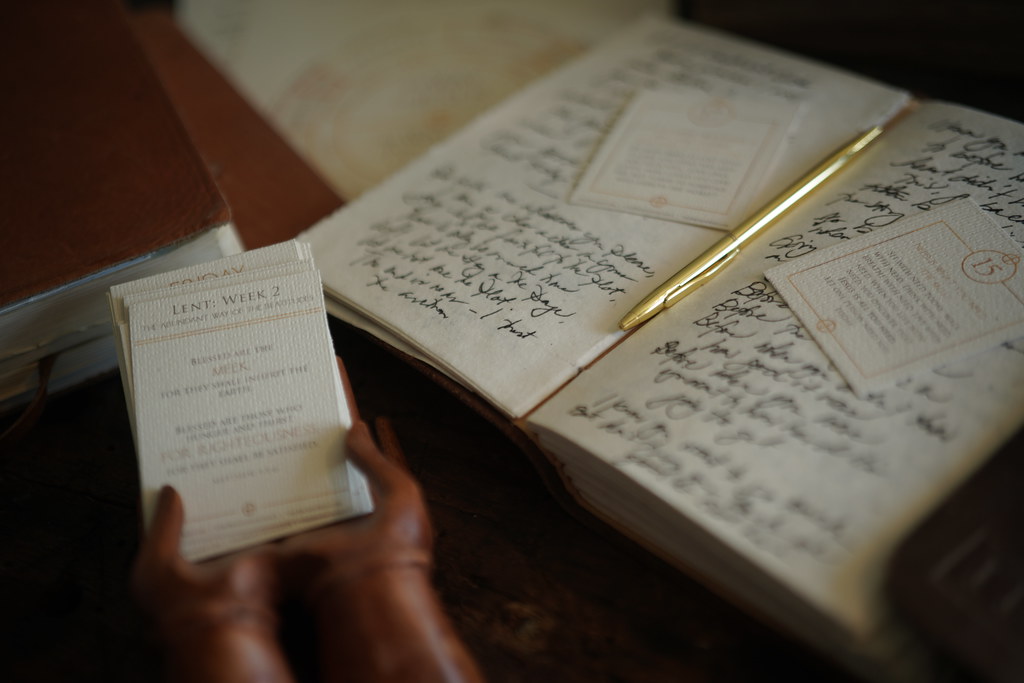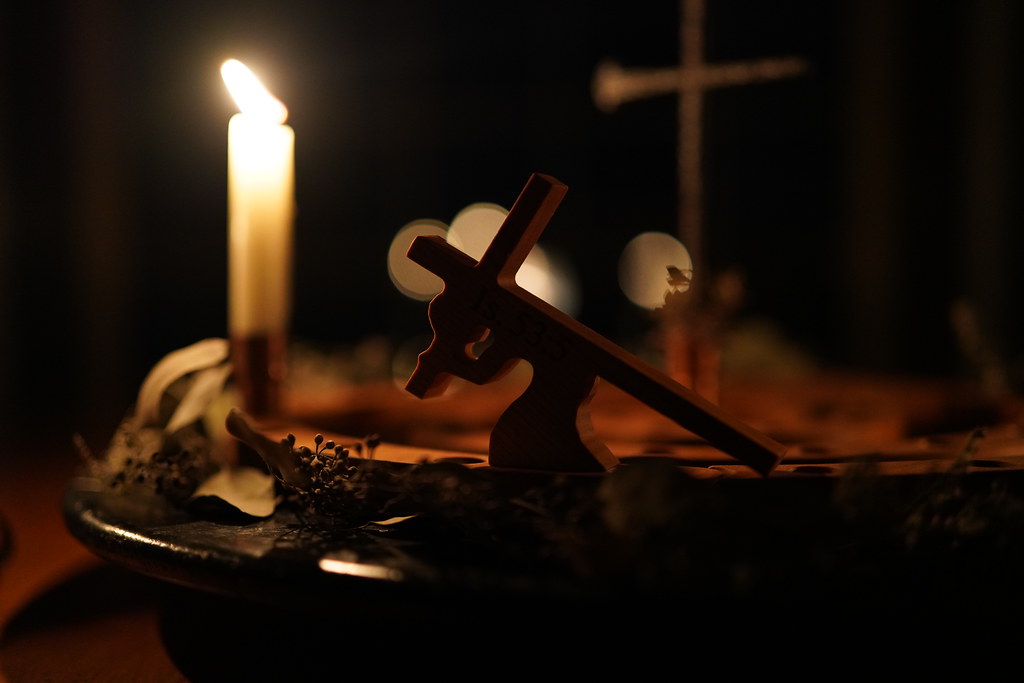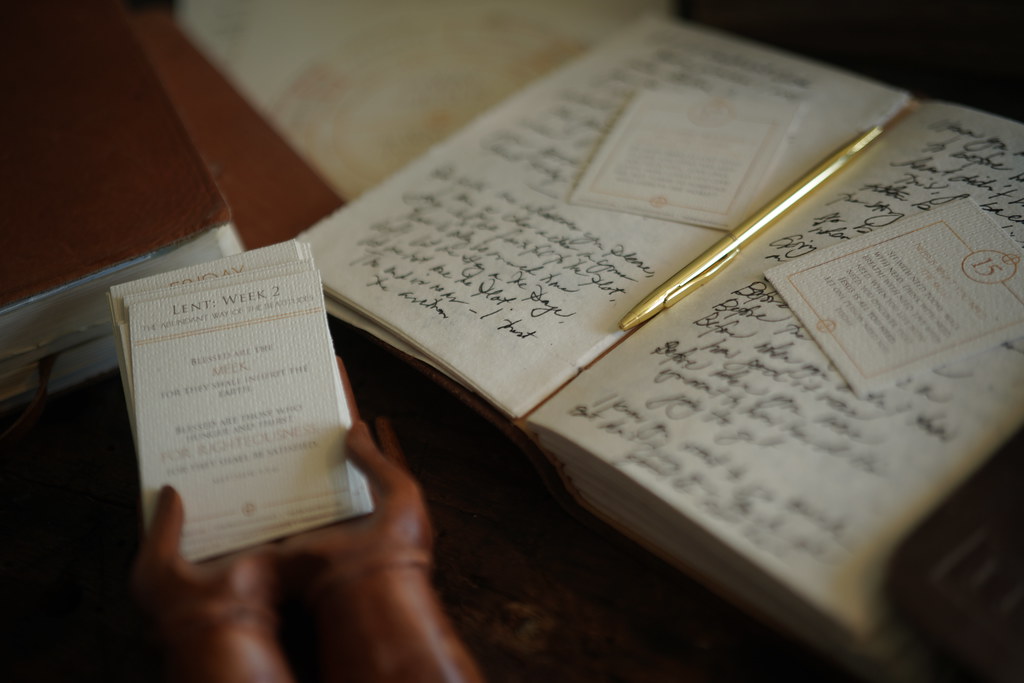It’s during the second week of Lent that I walk through the messy renovations two of our sons are in the midst of. As they show me how they burning the candle early and late to brave the work of restoring these old, abandoned homes on neighboring farms, it’s the faces of our sons that hold me rapt. I was once their first home — them literally dwelling within – and now most of our children have homes of their own.
It’s not that each of us aren’t going to get things wrong — it’s what each of us do with it afterward.
I want to go back.
I want to go back to when I would stroke their flushed cheeks at the end of the day, till they fell asleep here under our roof; I want to go back to when they’d tumble out of their mess of sheets and tangled quilts with wild bedheads every morning, and come padding barefoot in their worn pajamas into the kitchen, and I’d scoop them up and they’d nestle their drowsy warmth into my neck, and I’d rock them and we’d be at home in each other’s arms.











I want to go back and restore the broken parts of our family’s story…. go back and change some of my lines in the story with our children – say the right thing at the right time, not say the wrong thing at the worst time — so maybe there would be a different story, a better story, for each of them.
I want us to know our own kind of renovation and restoration and be re-storied. Because there are nights I lay in bed reflecting on the story of our family, that time and perspective and refining, now let me see how I didn’t get it right. Reflection is always part of the journey toward responsibility.
Like my own mama’s always said, one of the most formative truths she ever instilled in me: “It’s not that each of us aren’t going to get things wrong — it’s what each of us do with it afterward.”
Reflection leads to repentance. Reflection is key to repentance, which is key to relationship repair, which is key to relationship reconnection.
It’s true and direly needful in every relationship and work of restoration: Reflection leads to repentance.
Reflection is key to repentance, which is key to relationship repair, which is key to relationship reconnection.
We get to practice this like we practice our faith:
Only those who recognize what went wrong, and apologize for what they got wrong, have any hope of their dreams of right relationships realized.
I’ve been in the midst of my own interior restoration work, and ask another mother just last week, “What if I am getting this wrong even now?”
She smiles and whispers: “But it won’t only be one thing you get wrong; you’re getting all kinds of things wrong – we all are.”
Only those who recognize what went wrong, & apologize for what they got wrong, have any hope of their dreams of right relationships realized.
And I exhale and remember: It’s not like anyone gets most of parenting right, with only a risk of getting one thing wrong; parenting – like all of life – is about getting all kinds of things kind of right, and getting all kinds of things more than kind of wrong.
But that’s the good news of the gospel, that literally never stops being the best news: You get things wrong, you get so much wrong, but Jesus gives you all of His rightness, and more than enough grace to cover it all.
As I walk through the old dilapidated houses our sons are working exhausting long days to renovate and restore, I’m so moved by their optimism, their work ethic, their faith. And I catch my own reflection in the waving glass of one old window and I can feel all the nuance of it:
They say your children are a reflection of you.
And I turn toward one of our sons grown up, and I can see how, in some ways, it is true:
Sometimes you need the mirror of your child to see your own reflection and make changes to improve.
Their tempers get you on your knees about your temper; their self-centeredness moves you to reflect and repent of your own self-centeredness; their spiritual hunger or apathy convicts you of your own. Because children are, in some ways, a reflection of us — you can see how you’re called to pray more, confess more, repent more, trust more, stay hidden in Christ more.










But that’s the good news of the gospel, that literally never stops being the best news: You get things wrong, you get so much wrong, but Jesus gives you all of His rightness, and more than enough grace to cover it all.
But in other critical ways, our children are not a reflection of us, but are distinctly their own people, with their own stories, and every parent needs to differentiate their stories from that of their children.
Unless you differentiate from your child, you can end up seeing your child as a reflection of your worth, their story an extension of your dreams, their lives as a script in your own story.
Unless you differentiate from your child, you can end up living the same old dysfunctional stories of the past that you are called to live free of.
All of our relationships, with anyone, including our children, are held between two anchors: attachment and autonomy.
Press toward the polarity of only attachment, and relationships can twist into dysfunctional enmeshment and co-dependency.
Press toward the polarity of only autonomy, and relationships can distance into dysfunctional isolation and self-focus.
Healthy relationships hold space for both healthy attachment, and healthy autonomy.
Unless you differentiate from your child, you can end up seeing your child as a reflection of your worth, their story an extension of your dreams, their lives as a script in your own story.
And differentiation is about this healthy holding on to both the attachment of connection, while holding on to the autonomy of a secure identity. Differentiation means we are distinct from each other, without being distant from each other. And growing in healthy differentiation moves the anchors of autonomy and attachment actually closer to each other, so they aren’t polarizing extremes of either/or, but rather you are closely connected to someone while also remaining closely connected to your own values and convictions and identity.
That’s always part of the restorative work of relationships: Let go of expectations, while holding on to close connection.
Kneeling down and beckoning me to come closer to see, one of our boys shows me how he’s been working at putting in new floor joists so the house can stand, so the old house doesn’t have to be torn down.
And I nod, undone with how he’s committed to restoration stories, how we all can be:
The good of your child’s story can no more go to your head, than the hard in their story can blame your heart.
Differentiation is how to be in close relationship with each other, without being constantly reactive to each other.
Because: Their story isn’t your story, nor is their story a fair or whole reflection of you or your story, and they have agency and autonomy in their story, just like you do in yours.
And like our children have to choose their own Savior, our children also get to choose their own story.
This is all that ultimately matters, this is what renovates all the broken places, this is what restores:
We don’t get to be a saviour to our children, we only get to be like our Saviour to our children.
I reach over and pat our son’s shoulder, tell him how moved I am by his tenacity, by his vision, by his perseverance.
The real work of a parent isn’t to take credit for your children, or take condemnation for your children, but to prayerfully keep taking your children to Christ no matter what.
I look Kai in the eye, and feel all this love for him, feel all this love for every single one of our miraculous children. And I know it: Our children owe us nothing more than the very honor and respect that we owe them. We may be part of giving them life, but in the end, all that we ultimately get is to give thanks for getting the joy of experiencing any life with them at all.
Kai tells me that he’s almost ready to work on the wiring and electricity of this century-old home that more than one carpenter said we should just tear down, but the better story to live is always one of restoration.
And I nod with a light bulb moment of my own.
Because this is the life-changing epiphany:
The good of your child’s story can no more go to your head, than the hard in their story can blame your heart.
The real work of a parent isn’t to take credit for your children, or take condemnation for your children, but to prayerfully keep taking your children to Christ no matter what.
The work of parenting is ultimately about needing to stay on your knees.
There on my knees, I smile grateful and tell our son that this is good work, this is all good and faithful work.








We don’t get to be a saviour for our children, we only get to be like our Saviour to our children.
That evening at home under our roof, I sit with our Lenten wreath, designed and made by our oldest son, and I don’t move the Lenten wreath’s candle back. I don’t go back.
But at the end of the second week of Lent, I gratefully move the Lenten wreath candle forward, I move the cross-carrying figure of Christ forward, and I lean forward and linger long in the flickering candlelight, linger long in the light of Christ.
The Word Himself is the Author of our stories, the only One who has all the authority to re-story and restore us, and the Word keeps writing our stories right into eternity, till the last word is a good Word.
Reflecting on Christ leads to being a reflection of Christ.
I sit there late with the candle, with the figure of Christ with the cross, with the open Word, till I lose track of time and feel the relief of it: There is still time, time for every family, time for every relationship, time to move forward in this way that restores all things:
Reflecting on Christ leads to being a reflection of Christ.
A Lent to Reflect:
Can I Give You Your Free Reflective Lenten Journaling Calendar?

Can we give you a free tool to engage the spiritual practice of reflection this Lent with your free 40-day Lenten Journaling Calendar, with a reflective journaling prompts for each day of Lent, helping you to be soul restored and re-storied into the abundant way of the Beatitudes.
This Lent, lean into the spiritual practice of reflection because: Reflection is how you see the next best action.


Simply come join our email family right here, and your farm girl here will gift you your free 40-day Reflective Lenten Journaling Calendar, tucked right into your inbox, along with the warmest welcome to our email family.
No matter where you’re coming from or where you’re going to: An honest reflection of the past is the way you see a holy redemption of the future.

Without the spiritual practice of reflection, you can end up doing things you’ve always done, while expecting things to be different.

The spiritual practice of reflection lets you see not only the parts of the story that you’d do anything to change – but how God used some of the hardest parts of the story to change you.

Start your free 40-day Reflective Lenten Journaling Calendar today and deepen your spiritual practice of reflection and daily journaling with a thoughtful, reflective journaling prompt every day of Lent.
Because: Reflecting on Christ leads to being a reflection of Christ.
Catch Up — & See What’s Upcoming — in this Series during Lent:
A Lent to Reflect: Part 3: Even in the Face of Regrets: How to Practice Hope and Growth
A Lent to Reflect: Part 4: How to Practically Learn the Art of the Spiritual Practice of Reflection to Experience Soul Transformation







